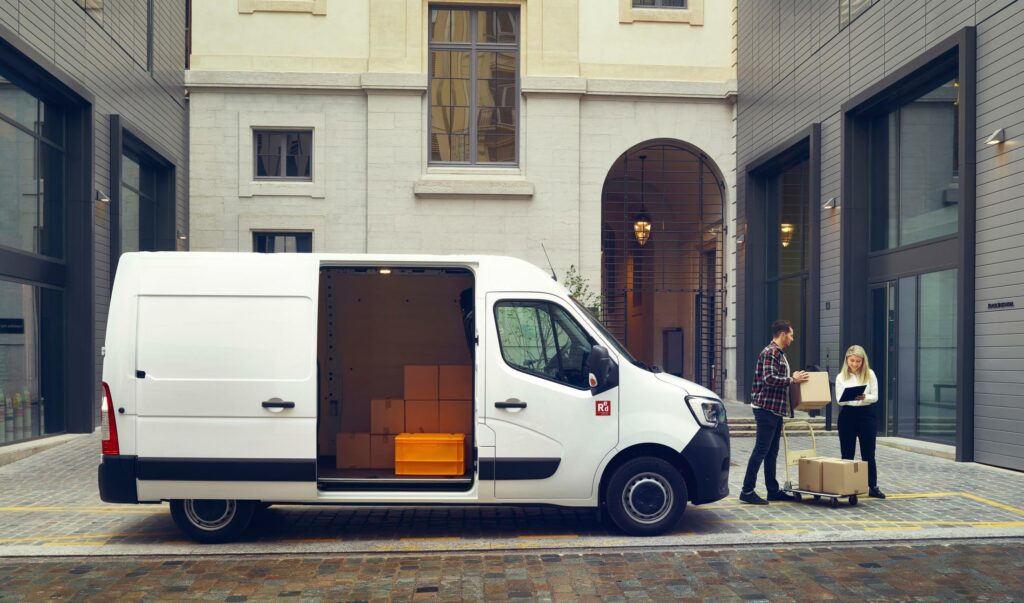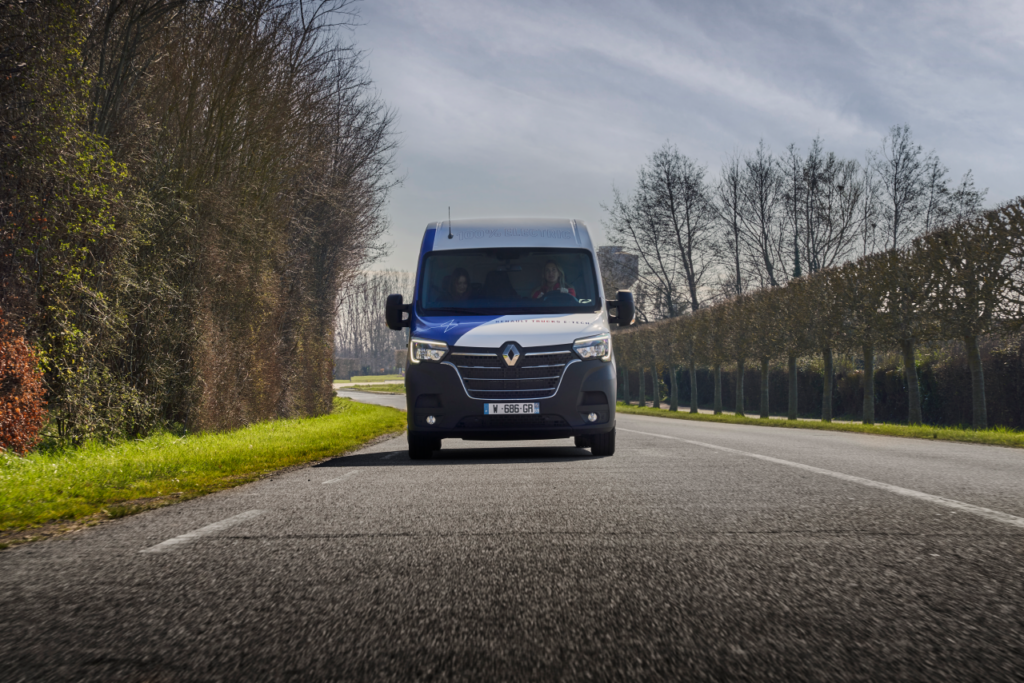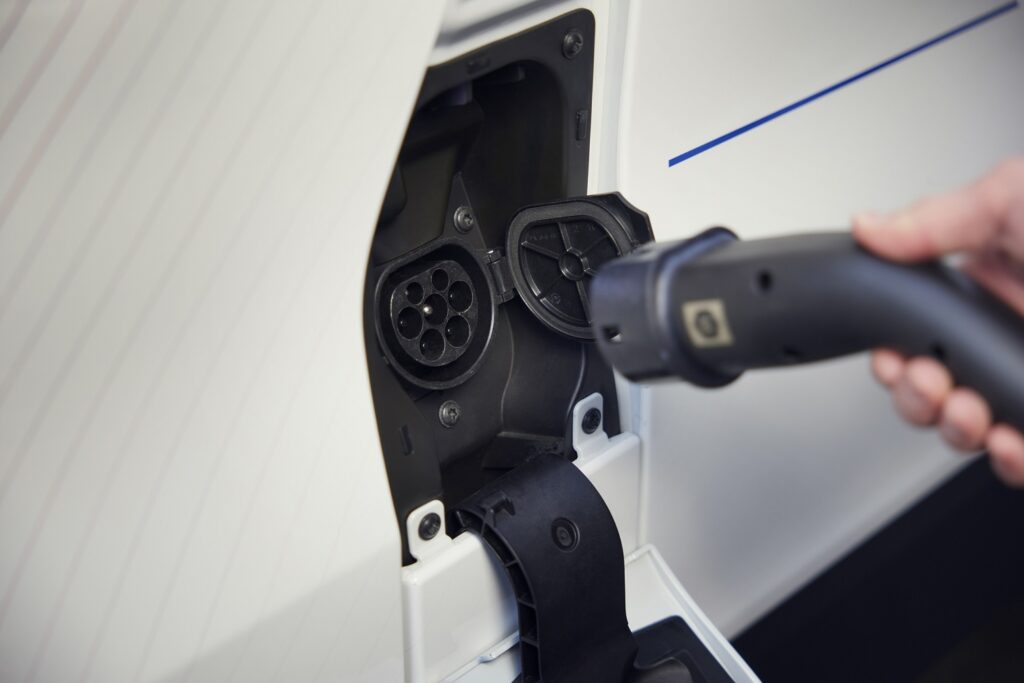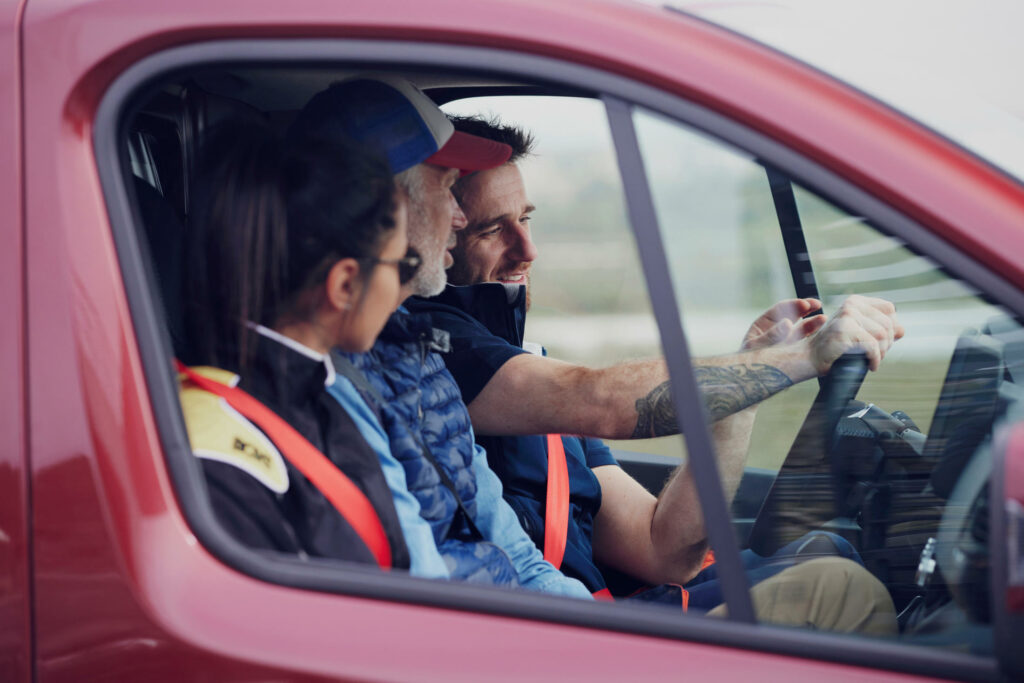
This guide outlines everything you need to know about driving electric in the UK.
The UK Government have hit the gas on electromobility and it’s becoming more and more unavoidable. For some operators, EV may be the only option for running a fleet or business efficiently in the not-too-distant future.
If you are new to EV or are looking to get the most out of your current electric van, this is the page for you.
On January 3rd 2024, the Zero Emission Vehicle (ZEV) Mandate became law. This requires manufacturers and dealerships to sell a certain percentage of electric vehicles each year in order to reduce the amount of internal combustion engine (ICE) vehicles on the road, which in turn, reduces greenhouse gasses.
Whilst this sounds more like a dealership’s problem, than a driver’s problem, electromobility does have significant advantages for you.
Battery electric vehicles (BEVs) will play a vital role in the UK’s sale of vans over the next few years. EVs are constantly evolving to become a reliable and suitable alternative to ICE vehicles. By the end of 2023, Renault Trucks UK had revealed major updates to their van offering with the launch of the Renault Trucks Trafic E-TECH and the redesigned Renault Trucks Master Red E-TECH, offering enhanced design, range, and durability. This makes them a real contender for professionals wanting to switch to electric, as the Master offering a WLTP range of over 410km in range and the Trafic, 297km.
As concern for the environment grows – with the rollout of the ZEV Mandate and ULEZ – the market share for electric vans is growing. This is particularly prominent in urban areas. Business owners and private buyers will see more pressure to adapt as the ‘clean air’ legislation and initiatives will become the norm in coming years.
Furthermore, there has been a significant attitude shift as drivers are becoming more receptive to EV. According to EY. EV buying intent has taken over ICE, with 54% of buyers are more interested in EV in 2023.
Whilst the prospect of switching to electric may remain daunting to some, electric vans are constantly evolving and becoming more viable option. Whilst there are many questions and reservations amongst drivers, there are plenty of advantages.
EVs produce zero tailpipe emissions, which means their carbon output reduces significantly with widespread adoption. This brings further benefits such as improved air quality – especially in urban, built up areas which creates a better quality of life.

Did you know that electric vans can be cheaper to run their diesel counter parts? The cost of electricity per kWh has reduced while the cost of diesel has reached record highs – averaging £1.51 per litre.
Its not just fuel that’s cheaper, EVs can be cheaper to service. It’s a common misconception that EVs cost more to service than diesel. There’s a lot more moving parts in a diesel van that can go wrong or need checking – so it can end up costing more. In an EV, there are no pistons, no oil changes and no clutch to replace.
Whether you are running diesel or electric, there are numerous ways to look after your van to keep it out of the garage, you can find out what here: Keep your Van running for less

Incentives also help with running costs. The UK Government introduced the Plug-in Van Grant which reduces the purchase price by up to 35%; and significantly reduced commercial vehicle tax on EVs to help operators run sustainably without breaking the bank. Energy providers are also offering support on EV charging and installation.
Manufacturers such as Renault Trucks UK offer benefits to their customers with tailored support. This includes:
You can find out more about the Renault Trucks Unique electromobility offering for Trucks and Vans here: Renault Trucks accessable EV offer

EV vans are virtually silent! This makes life much more pleasant for drivers and local residents as there will be less noise pollution and fewer noise complaints.
EVs vans are much more torque-y than their diesel predecessors. Drivers can nip around town quickly with smooth automatic transmissions.
Driving EV and showing that off does wonders for your business PR and image. Many operators have been increased business after customers have favoured their actions to protect the environment.
Local authorities are also encouraging EVs. Some are introducing free parking for electric vehicles and they’re exempt from Congestion Charge and ULEZ fines. Cities such as Nottingham have introduced the Workplace Parking Levy which charges people more to park in the city and have introduced lots of infrastructure for charging. They are also working on operating from renewable energy sources which cuts their carbon output at the core.
The UK now has the largest ULEZ in the world, covering every London borough. With similar cities such as Oxford and Northampton following suit, vehicles that are not electric or use any fuel below Euro 6 may have to pay £12.50 or more a day to travel in them. This can be quite costly if you need to travel through a ULEZ every day.
In the future, as fossil fuels are gradually phased out, an EV may be the only way to travel without a fee. Switching to EV sooner rather than later, means you can save more sooner and iron out any teething problems before diesel is gone for good.

Since EVs first hit the road, there have been anxieties and challenges when comparing them to diesel. However, the more EV evolves, the less relevant these “disadvantages” become.
Below we have challenged and myth-busted some common arguments against EV.
This is probably the largest deterrent from EV. Evs will not travel as far as a single charge than a diesel van on one tank. However, the ranges in electric vans have significantly improved with the advances in technology in a relatively short amount of time. For example, the updated Renault Trucks Master E-TECH can achieve a WLTP range of over 410km, whereas before it could achieve up to 200km – that’s over 50% more range!
You can find out what else the Renault Trucks Master E-TECH van is capable of here: Meet the New Renault Trucks Master Red Edition
Further, once you understand your van, get used to it and push its performance, the more range and benefits you will get out of it. Then the anxiety will melt away.
Ok, charging a vehicle takes significantly longer than making a quick pit stop at the petrol station. But the charging time may surprise you.
On a DC fast charge, a Renault Trucks LCV can reach full charge in under 2 hours. You could do a lot in that time. Although it may require a schedule shift. Proactively planning your day-to-day around your charging requirements can still allow you to have a productive day and remain an efficient business.
Finding somewhere to charge can be tricky and it’s not as convenient as a petrol station. But with more government legislation coming in as we edge closer to the Paris deadline, the more infrastructure is coming to make charging more accessible.
Although these changes can’t happen overnight, the UK Government has pledged a £950 million charging fund to support the rollout of at least 6,000 high-powered charge points across England’s motorways and major A-roads by 2035. They are also supporting local authorities with £500 million of funding to increase local charge point coverage – and it’s already started.
In the meantime, manufacturers and energy providers are supporting business and private buyers with infrastructure.
Although electromobility is still a relatively new concept as it involves expensive components, the more EV is widely accepted and understood, the quicker the price will come down. There are also plenty of contract hire options available to help. Plus, once you have the van, it’s cheaper to run.
Efficiency and range quoted by manufacturers can vary in real life – and that’s widely accepted. The efficiency of an EV boils down to factors such as payload, driver behaviour and the weather. Whilst you can’t control the weather, you can take steps to manage your driving style to increase your van’s efficiency can reap great results.
You can find out more about efficient fuel economy here: How to improve your van’s fuel economy
Like everything that is operated by batteries – phones, laptops, smartwatches etc – the power deteriorates over time. Unfortunately, electric vehicles are no exception.
However, manufacturers are becoming increasingly aware of the inconvenience this causes for operators and are working to eliminate this issue.
Renault Trucks UK operates a unique battery promise that guarantees their performance for up to 10 years and will monitor its performance through telematics.

Most people believe that electric vans are best suited to urban areas and cities because that’s where the ULEZ’s and the chargers are. Although that is true, electric vehicles can be used everywhere with the right support and planning.
Overnight charging is proving very efficient for many operators – especially if they only operate one van. Energy providers are now offering set tariffs for van operators to charge efficiently and time their charging from when electricity is at its cheapest.
When listening to feedback, EVs have been found to be a rather pleasant surprise for drivers. As previously mentioned, the refined design of EVs make them quieter at all speeds. This makes the drive more relaxing and comfortable.
With EVs, manual gearboxes are a thing of the past – as is clutch control in traffic! Also, as there is no clutch – your maintenance costs are reduced as it’s one less thing to replace and worry about.
EVs are powerful too. The motors provide instant max torque providing responsive acceleration. Furthermore, the position of the batteries reduces body roll.

This term has been mentioned a few times in this article. Worldwide Harmonised Light Vehicle Test Procedure (or WLTP) replaced the NEDC test in September 2019. It determines the range of an electric vehicle but it better reflects real-world driving. However, some manufacturers give further estimates of the range you should be achieving.
Renault gives you a different WLTP for summer and winter to ensure transparency when determining whether their EV can deliver your expectations.
If you are still working out which EV is your perfect match you can talk to your local dealership <link to contact us>. They will offer the best advice and support with switching to electric. You could even try EVs out with demonstrator vehicles.
Some dealerships can offer useful software to monitor your EVs performance and give you the data you need to operate efficiently.
Renault Trucks’ software ‘optifleet’ is a fleet management support solution to help operators reduce operation costs. It covers data on reducing energy consumption, vehicle tracking, vehicle compliance, maintenance, and safety.
You can find out more here: Optimise your fleet and energy with Opti-fleet
There is a lot to consider when finding the correct electric vehicle for you. By weighing up the pros and cons of EV with the type of business you operate, you can find an appropriate vehicle which will help your business’ operation and help boost your journey to sustainability. It’s better to dip your toe in the water now and get used to this new way of powering your vans before it is too late.